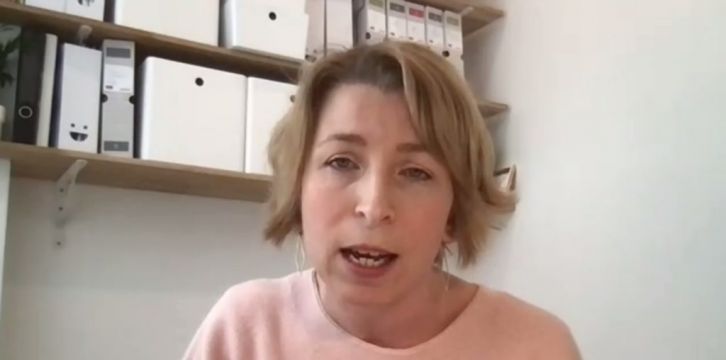The existing rights of children have been swept away in the online world because the age of “internet adulthood” is set at 13, a children’s rights conference has heard.
Leanda Barrington-Leach, head of EU affairs at 5Rights Foundation – a digital child safety charity – said it is “unforgiveable” that children’s rights have regressed in the digital world.
She told the Children’s Rights Alliance Online Safety Conference that the rights of young people have been “systematically overlooked, ignored, undermined, and trampled”.
It is estimated that one in five users in the EU is a child and one in three globally.
We need to do more to support young people to have positive online experience - Ireland has the opportunity to be a leader in online safety #123OnlineSafety pic.twitter.com/NN4nhQc74J
Advertisement— Children's Rights Alliance (@ChildRightsIRL) November 23, 2021
A report on the forthcoming Online Safety and Media Regulation Bill has recommended that a legal minimum age requirement for setting up social media accounts should be part of the legislation.
Addressing the webinar, Ms Barrington-Leach said: “I think what is, in a way, unforgiveable is that our existing rights have been taken away in the online world.
“There has been a regression of children’s rights just by the fact that children are children until they are 18.
“That is a principle that pre-dates the internet and yet somehow we ended up with low ages online, which should never have happened because anything we do should still have respected existing norms and law.
“That part is is unforgiveable. And it’s not just children – I think for women’s rights, for example, it’s a regression online with all the hate speech and misogyny.
"Discrimination & hate speech is all too prevalent in online communities & there are no safeguards to protect YP seeing this content. Tech companies are not doing enough to stop it. The current system isn't working", Jo, youth speaker #123OnlineSafety #OSMRBill @ChildRightsIRL
— CyberSafeKids (@CyberSafeKidsIE) November 23, 2021
“The fact that the norms have not been applied, that is one part that we could have foreseen and upheld those rights from the start as this new system was being developed.”
She said the digital world is not optional for children and that young people are “routinely served up” harmful content.
This includes pornography, violence, pro-suicide and pro-anorexia posts.
The children’s rights expert said the impact of viewing such content can be horrific.
“I recently learned, for example, that 70% of consumers of child sexual abuse material were first exposed to this content before the age of 18 and 40% of them when they were under 13,” she added.
“More than half of them were not looking for this material.”
The conference also heard from several young people, including 17-year-old Jo (whose surname was withheld) from the National Youth Council of Ireland (NYCI).
She said one of the many issues within online groups is the prevalence of discrimination and hate speech.
“Young people can very often fall victim to these places,” she added.
“I would argue that they are actually being brainwashed into believing certain things which are incredibly problematic.
“I’m a woman of colour and I’m an immigrant and I’ve seen this happen in real time.
“I’ve seen some of my friends and all my peers become involved in these really toxic online communities where they see such awful things and then begin to repeat them and begin to kind of absorb them into their minds.
“Sometimes we see those real-life actions can have really fatal consequences.
“We’ve seen a rise in neo-Nazism, gun violence and and hatred towards minorities and hatred towards women, towards religious minorities and people of colour.
“I would argue that is directly linked to online, what’s happening online and how there are basically no safeguards.”
Alec, 18, from the NYCI and a member of the LGBT community, spoke of how online groups have helped him.
“I remember when I started discovering myself and started figuring myself out, I’d use social media to get to understand myself a bit more,” he added.
“I liked it because I didn’t feel alone, I found people, I entered into a lot of safe spaces, which I was scared to do in public.”







